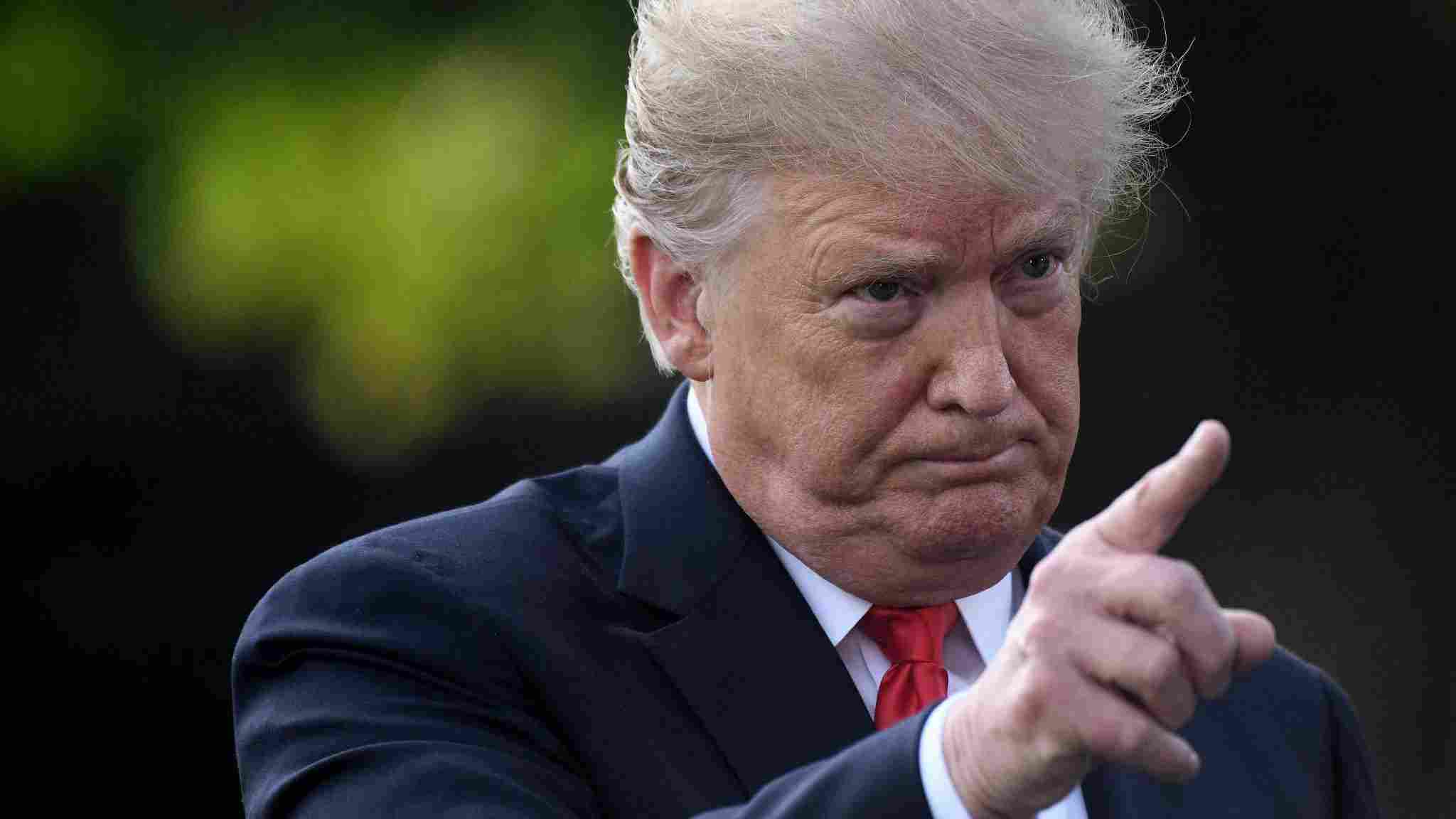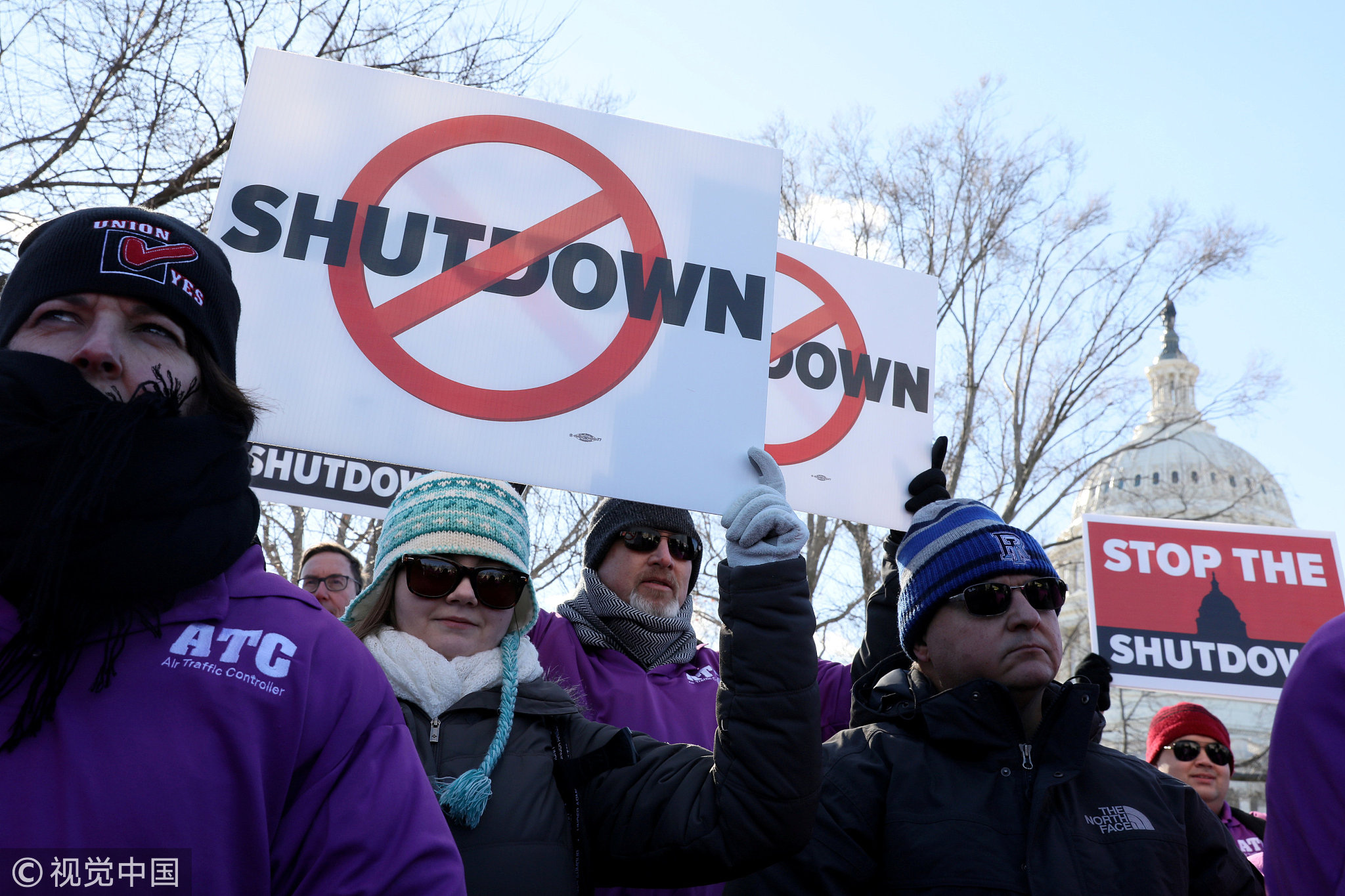
Politics
07:47, 12-Jan-2019
Trump holds back on emergency declaration in border row
Updated
07:42, 15-Jan-2019
CGTN
02:28

U.S. President Donald Trump reversed himself on Friday, saying he would hold back from declaring a national emergency to bypass Congress and fund his controversial plan to wall off the U.S.-Mexican border.
Trump's fight with Democrats over their refusal to approve 5.7 billion U.S. dollars for the wall project has paralyzed Washington, with the president retaliating by refusing to sign off on budgets for swaths of government departments unrelated to the row.
As a result, 800,000 federal employees including FBI agents, air traffic controllers and museum staff, did not receive paychecks Friday.

Federal air traffic controller union members protest the partial U.S. federal government shutdown in a rally at the U.S. Capitol in Washington, U.S. January 10, 2019. /VCG Photo
Federal air traffic controller union members protest the partial U.S. federal government shutdown in a rally at the U.S. Capitol in Washington, U.S. January 10, 2019. /VCG Photo
The three-week government shutdown became the longest on record: at midnight on Friday, it overtook the 21-day record set in 1995-1996, under President Bill Clinton.
But despite a stream of hints that he would imminently declare a national emergency and attempt to go around Congress, Trump told a White House meeting with state and local officials: "I'm not going to do it so fast."
Trump described an emergency declaration as the "easy way out" and said Congress had to step up to the responsibility of approving the 5.7 billion U.S. dollars.
"If they can't do it... I will declare a national emergency. I have the absolute right," he insisted.
Until now, Trump had suggested numerous times that he was getting closer to taking the controversial decision.
Only minutes earlier, powerful Republican ally Senator Lindsey Graham tweeted after talks with Trump: "Mr. President, Declare a national emergency NOW."
It was not clear what made Trump change course.
But Trump himself acknowledged in the White House meeting that an attempt to claim emergency powers would likely end up in legal battles going all the way to the Supreme Court.
Opponents say that a unilateral move by the president over the sensitive border issue would be constitutional overreach and set a dangerous precedent in similar controversies.
Source(s): AFP

SITEMAP
Copyright © 2018 CGTN. Beijing ICP prepared NO.16065310-3
Copyright © 2018 CGTN. Beijing ICP prepared NO.16065310-3